Between May 23 and May 26, citizens of the (for now) 28 countries of the European Union will elect 751 members to the European Parliament. Together, the national contests will send representatives from dozens of parties to be sorted into at least seven somewhat unwieldy party groups, influence the composition of the European Commission slated to take office in November, and shape EU policy in a treacherous period. There are dozens of subplots, from the ambiguous political loyalties of Hungarian Prime Minister Viktor Orbán to the likely return to public office of 82-year-old former Italian Prime Minister Silvio Berlusconi as a member of European Parliament (MEP) for Forza Italia.
The election results will have immediate national political implications.
- With Brexit delayed amidst gridlock and indecision in U.K. Parliament, the British electorate will have a chance to weigh in at the ballot box for the first time in two years. Nigel Farage’s new platform, the Brexit Party, will contend with Labour and the Conservatives to top the polls. Meanwhile, ChangeUK, formed by centrist defectors from Labour and the Conservatives, represents a new offering.
- French President Emmanuel Macron will be looking for a show of strength for his La République En Marche (LREM) to buttress his reform agenda after months struggling with the Yellow Vests protests; Marine Le Pen’s National Rally will be looking to send the opposite signal.
- A bad result for Germany’s Social Democrats, nationally and in simultaneous state elections in their stronghold of Bremen, could weaken an unenthusiastic grand coalition in Berlin and hasten the end of Chancellor Angela Merkel’s political career.
- Italy’s governing Five Star Movement and League both aim to form new party groups around themselves, with the League’s far-right European Alliance of Peoples and Nations looking rather more successful than Five Star’s more abstract group.
- Poland’s opposition has a chance to make political gains ahead of national elections in the fall in which it will try to dislodge Law and Justice (PiS), which has systematically weakened checks and balances since returning to power with an absolute majority in 2015.
At the European level, the three largest groups—the center-right European People’s Party (EPP), the center-left Progressive Alliance of Socialists and Democrats (S&D), and the liberal Alliance of Liberals and Democrats for Europe (ALDE) in partnership with LREM—are together estimated to win something like 55 percent of the seats.
So nationalists are unlikely to win the European election or choose the new EU executive. But they will have a stronger presence and stronger influence than in the past.
The main groupings are themselves somewhat fractured and include problem children. The EPP has wrestled for years with the inclusion of Fidesz, the authoritarian-minded party of Viktor Orbán, in its ranks. Under external and internal pressure ahead of the European Parliament elections, it suspended Fidesz. President Trump, however, will welcome Orbán to the White House next week at the height of the campaign. Meanwhile, the S&D has frozen relations with Romania’s ruling Social Democrats (PSD), which has been doing its best to block the country’s former chief anti-corruption prosecutor Laura Codruţa Kövesi from leading the new European Public Prosecutor’s Office (EPPO).
These elections are the second in which Europe is seeing a race between lead candidates nominated for the Commission presidency by the different party groups, known as the Spitzenkandidat system. This approach directly links the European Parliament elections to the subsequent formation of the EU’s executive, but doesn’t have universal buy-in. While the EPP’s Jean-Claude Juncker won the job this way in 2014, it may not work this time for Manfred Weber, a member of the Bavarian Christian Social Union who has led the EPP in the Parliament for five years, or Frans Timmermans, first vice president of the European Commission and the candidate of the S&D. A broader governing coalition may require a compromise candidate, and Macron has tried to position himself to be king- or queen-maker.
The postponement of Brexit to October 31 means that determining the basic framework of future economic relations between the European Union and the United Kingdom and preventing the return of a hard border to the island of Ireland will continue to dominate the EU agenda as the new Parliament takes office and the new executive is formed. Given British and continental hesitation to allow the default no-deal exit, the knotty problem could yet be kicked further down the road.
There is no shortage of storylines and political ramifications from an election this complicated and continental. Brookings scholars will explore a number of them in a series of blogs over the coming weeks. Stay tuned.
The Brookings Institution is committed to quality, independence, and impact.
We are supported by a diverse array of funders. In line with our values and policies, each Brookings publication represents the sole views of its author(s).


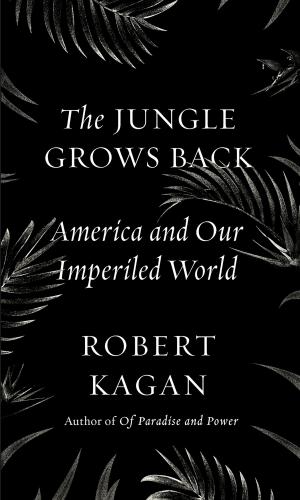
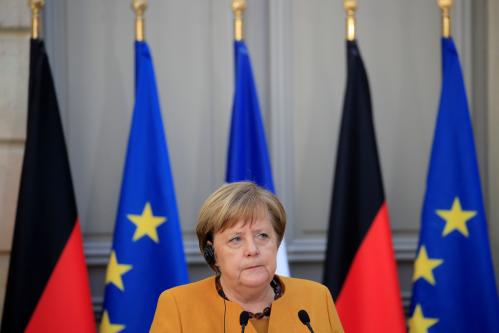
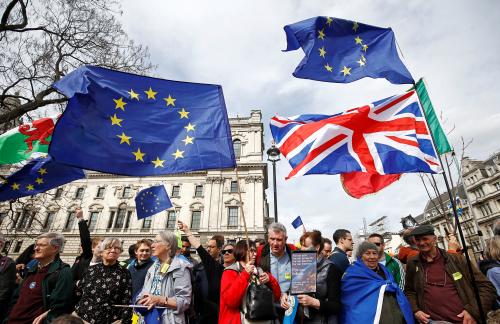
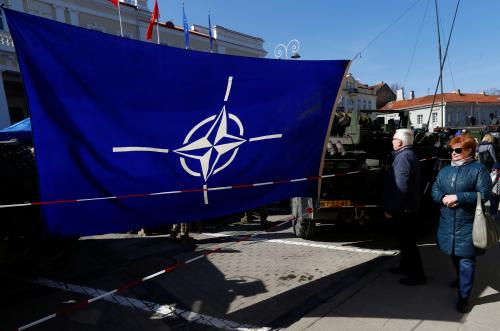


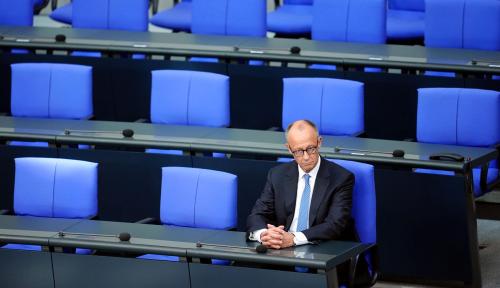
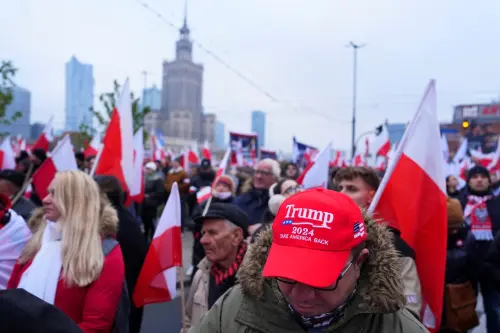

Commentary
Europe votes: Why the European Parliament elections matter
May 8, 2019